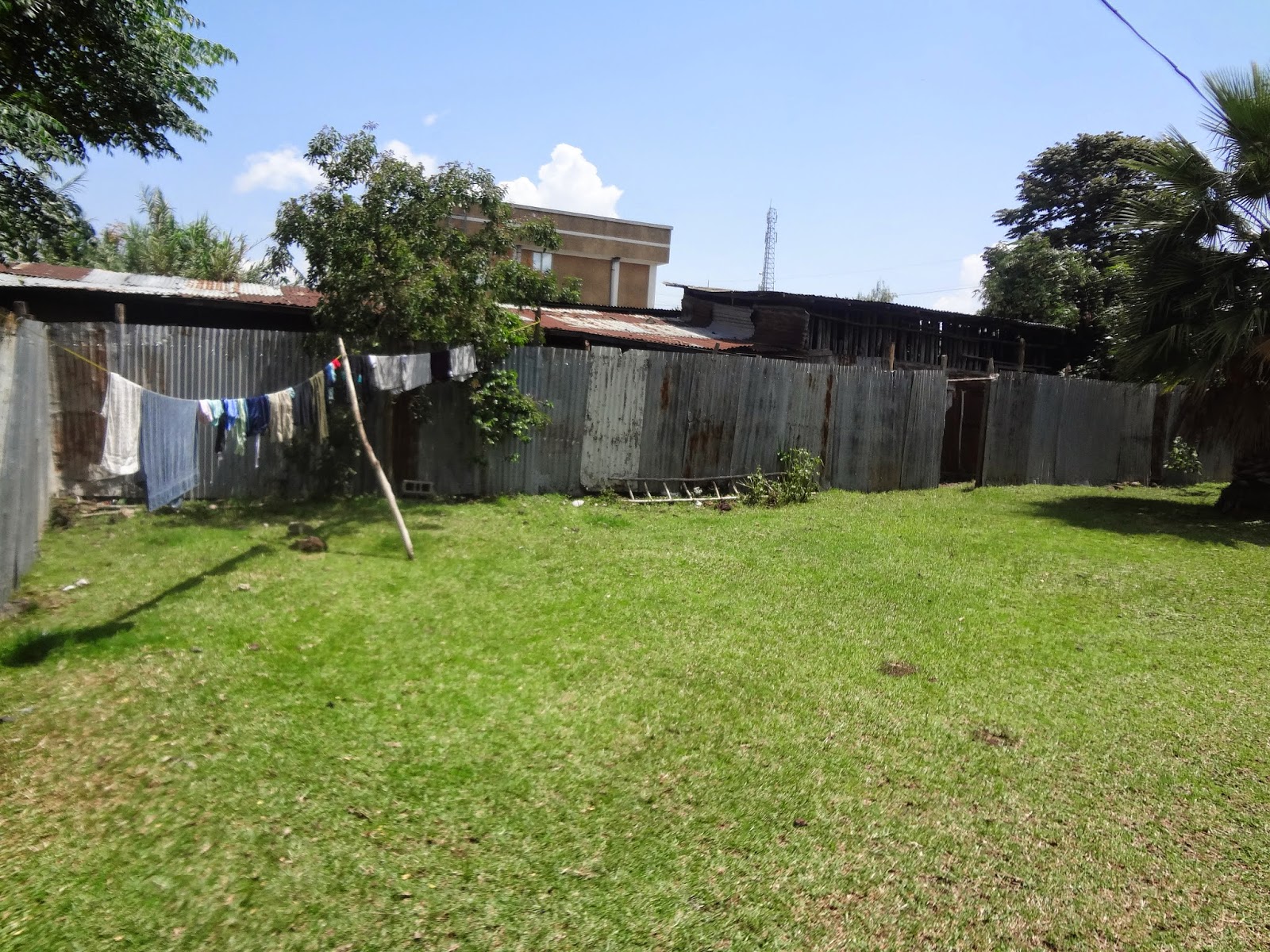In addition to having to adjust to the culture, language,
and life of Ethiopia, another major thing I have had to adjust to is the
food. There are the traditional
foods, foods that you can find just about anywhere and foods that are specifically
American, Mexican, Italian, Chinese, etc (and these foods are mostly found in
Addis). I decided that I wanted to
write this post because the food here is so different and has already had an
impact on my experience thus far.
Hence, it is only fair to all of you reading my blog to share about said
experiences in order for you to learn a little bit more about the Ethiopian
culture and to give you a better picture of what it is like for me to live
here.
The
first thing you should know is that all of the fruits and vegetables here in
Ethiopia are what we Americans would call organic. It is amazing because you can’t find any of that non-organic
stuff and the fruits and vegetables here are all pretty inexpensive because
they are all organic. It is great because
that means I get to buy amazing fruits and vegetables at a reasonable price. Another great discovery I have made are
some of the spices and herbs that I can find (some of which are only available
in Ethiopia). One such spice is
berberi. You can get either dried,
whole berberi or powdered berberi (I tend to get powdered berberi). The whole berberi is a pepper that
tends to be larger and dark red to deep brown. They also tend to be mild to hot. There is another pepper that is called mitmita. You can also get it as a dried, whole
pepper or get powdered mitmita. It
tends to be hotter than berberi.
On the down side, there are spices that cannot be found (or are hard to
find) in Ethiopia that one can easily find in the states.
Here are a handful of traditional
foods eaten in Ethiopia: injera
(replaces bread and is eaten with most dishes), shiro wat and shiro tagabino,
dinnic (the c is pronounced like ch; also is the Amharic word for potato) wat,
fuul (I like this dish for breakfast; also called special fuul when eggs are
added), duro wat (a dish with chicken), and ch’okla t’ibs (a meat dish). There are a lot of other traditional
dishes, but these are a few that I really like. On a side note, duro wat is a very popular dish during
Easter. This last Easter was
during my pre-service training in Butajira and I ate a lot (and I mean a lot)
of duro wat. My host family gave
me duro wat and my friend Holly’s host family gave me some duro wat. I ate more duro wat for a few days (not
only with my host family, but with other host families when I visited a couple
of my friends throughout the week.
I think it is safe to say that I ate enough duro wat to last me at least
six months… But it was good!! One traditional food that my stomach
agrees with the least (or at least I would guess so since Peace Corps does not
want us to eat this) is kitfo.
Kitfo is a dish with raw meat and a bunch of different spices.
There are also beverages that are
specific to Ethiopia. Although
coffee and tea are not specific to Ethiopia, both are very good here. Beverages that are specific to Ethiopia
include some fermented drinks and alcoholic drinks that I won’t go into any
detail about because I really don’t know much about them.
One weird thing that I have become
familiar with here is something called the “gorsha.” If someone is gorshaing you, that means that they are not
only offering you food, but they are basically feeding you (and don’t worry, I
will be more than happy to demonstrate when I am back in the states)! I have been gorshaed a handful of times
not only by my host family during pre-service training, but by a couple of
Peace Corps volunteers as well. It
is a little weird and awkward, but it is an Ethiopian custom that all of us
volunteers have or will experience at some point during our two year service
(and if there are any Ethiopian volunteers reading this who have not been
gorshaed, watch out! It is coming
at some point…).
The
last thing I will mention in the blog post are my cravings. I am not gonna lie… at times, one of
the hardest things for me are the foods that I love that I can only find in the
states (some of which can be found in Addis). I do miss processed foods at times (there is not much here
in Ethiopia that is processed). At
times I miss the dishes that I would only get with my family such as dog food
(if you want to know the story behind that one, feel free to ask and I share it
with you), or my grandma’s cooking.
And do not become alarmed if I suddenly become mad at you for posting
food pictures on Facebook. I am
just a little jealous/annoyed by the pictures because the food so often looks
amazing and I can’t eat it!!
So
the point of this post is this… yes, I have had to make some adjustments to my
diet. In some ways it is hard, but
overall it has been a good change.
I do miss certain things every once in a while, but there are amazing
Ethiopian dishes that I have tried and overall my diet is at least a little
better than it was in the states.
 |
| This is one of the typical dishes I make myself for dinner. |












